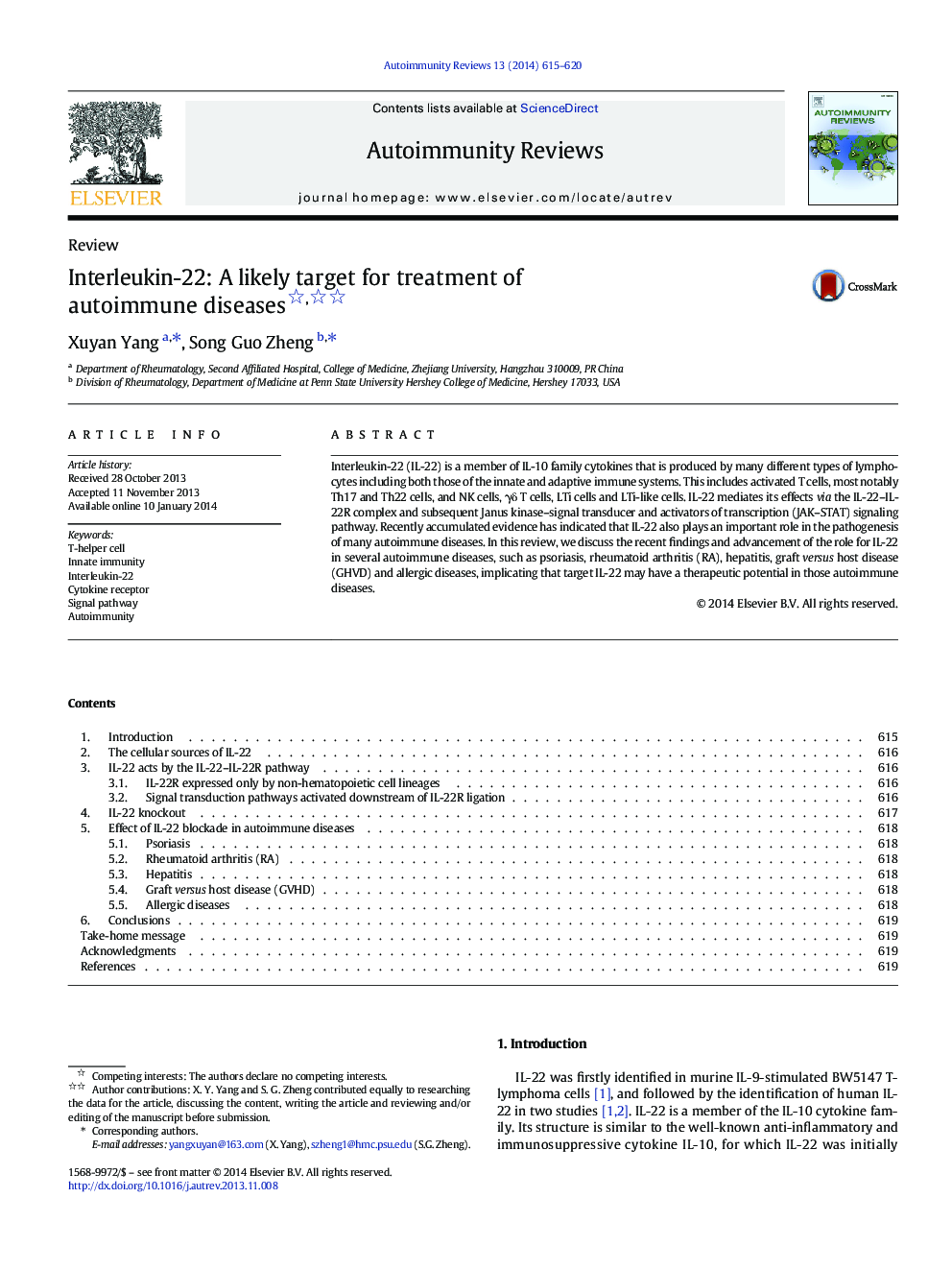| Article ID | Journal | Published Year | Pages | File Type |
|---|---|---|---|---|
| 3341592 | Autoimmunity Reviews | 2014 | 6 Pages |
Interleukin-22 (IL-22) is a member of IL-10 family cytokines that is produced by many different types of lymphocytes including both those of the innate and adaptive immune systems. This includes activated T cells, most notably Th17 and Th22 cells, and NK cells, γδ T cells, LTi cells and LTi-like cells. IL-22 mediates its effects via the IL-22–IL-22R complex and subsequent Janus kinase–signal transducer and activators of transcription (JAK–STAT) signaling pathway. Recently accumulated evidence has indicated that IL-22 also plays an important role in the pathogenesis of many autoimmune diseases. In this review, we discuss the recent findings and advancement of the role for IL-22 in several autoimmune diseases, such as psoriasis, rheumatoid arthritis (RA), hepatitis, graft versus host disease (GHVD) and allergic diseases, implicating that target IL-22 may have a therapeutic potential in those autoimmune diseases.
